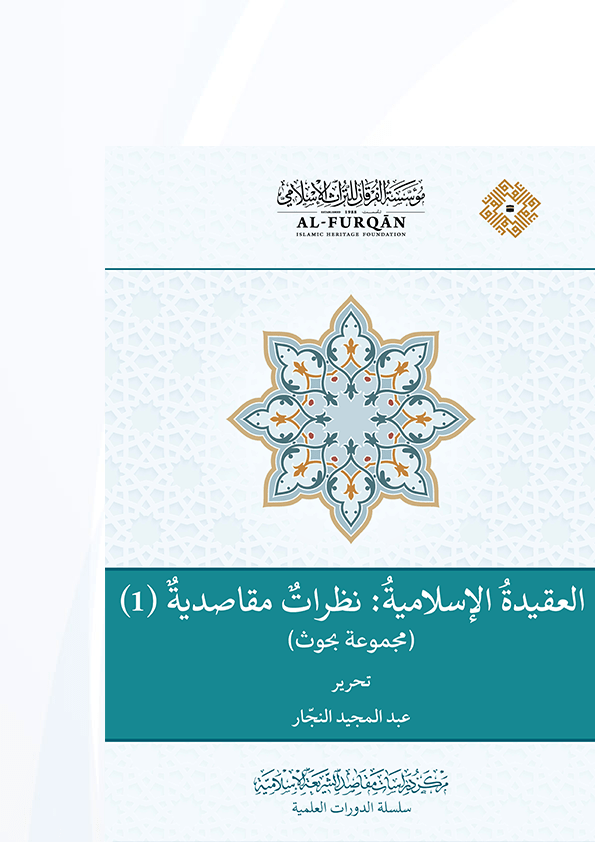Summary
This book presents the proceedings of the scientific training course, “Islamic Creed: Maqāṣid Perspectives” in its first version. This was organised by the Centre for the Study of the Philosophy of Islamic Law at Al-Furqān Islamic Heritage Foundation, in collaboration with the Maqāṣid Research & Studies Centre (Rabat), and the Research and Studies Laboratory in Islamic Sciences at the Faculty of Letters & Humanities in Mohammedia, Morocco. The course held on Wednesday and Thursday, 2-3 November 2022CE (7-8 Rabī‘ al-Thānī 1444AH), in the hospitable environs of the Faculty of Letters & Humanities in Mohammedia, saw a substantial scientific gathering, represented by the attendance of a company of eminent scholars, leading instructors, and a large number of students and researchers.
This course comes within the frame of the assiduous efforts to spur those espousing renewal and novel consideration of maqāṣid jurisprudence to examine interests-based causation (ta‘līl maṣlaḥī) applied to the Islamic creed objectives. Moreover, to present the related areas of inquiry, along with their benefits, yields, secrets, and fruits. In addition, to reveal their numerous reflections and manifestations on the human being, whether on his rational or emotional aspect, behavioural practice, or natural surroundings and social context. In other words, employing maqāṣid science in the service of Islamic creed and its issues, in a process of renewal, rationalisation, activation, and discovery, for it to have anticipated outcome and intended purpose. The goal of the creed objectives is not only to cement and entrench belief in the hearts of devotees, by establishing the permanent relationship between them—as servants—and their Lord, the Almighty, in their faith in, love for, and glorification of Him, while experiencing tranquillity, self-contentment, confidence in their heart, and buoyant spirituality. Indeed, part of the perfection of monotheistic belief and its objectives is that it purifies and elevates the human being on the scale and levels of humanity, thus enhancing their value, as well as transforming faith into a reality, in the practical behaviour of individuals and societies.
The training course papers revolved around the congruence and mutual reinforcement between the objectives of Islamic law and those of creed. They examined the methodological entry to the objectives of creed, and the means for their discovery. They also addressed the objectives of Divine things (ilāhiyyāt) through the lens of the book of faith (Kitāb al-īmān) and monotheism (Kitāb al-tawḥīd) in Ṣaḥīḥ al-Bukhārī. Other papers presented the methodology of creed objectives employed by Abū al-Walīd Ibn Rushd al-Mālikī, Najm al-Dīn al-Ṭufī, and Abū Bakr al-Biqā‘ī. They also covered the objectives of Allāh’s Beautiful Names and Noble Attributes, the social objectives of creed in modern Islamic thought, and the objectives of creed in unifying the Islamic nation, and reviving its civilisational authority.



Reviews
There are no reviews yet.